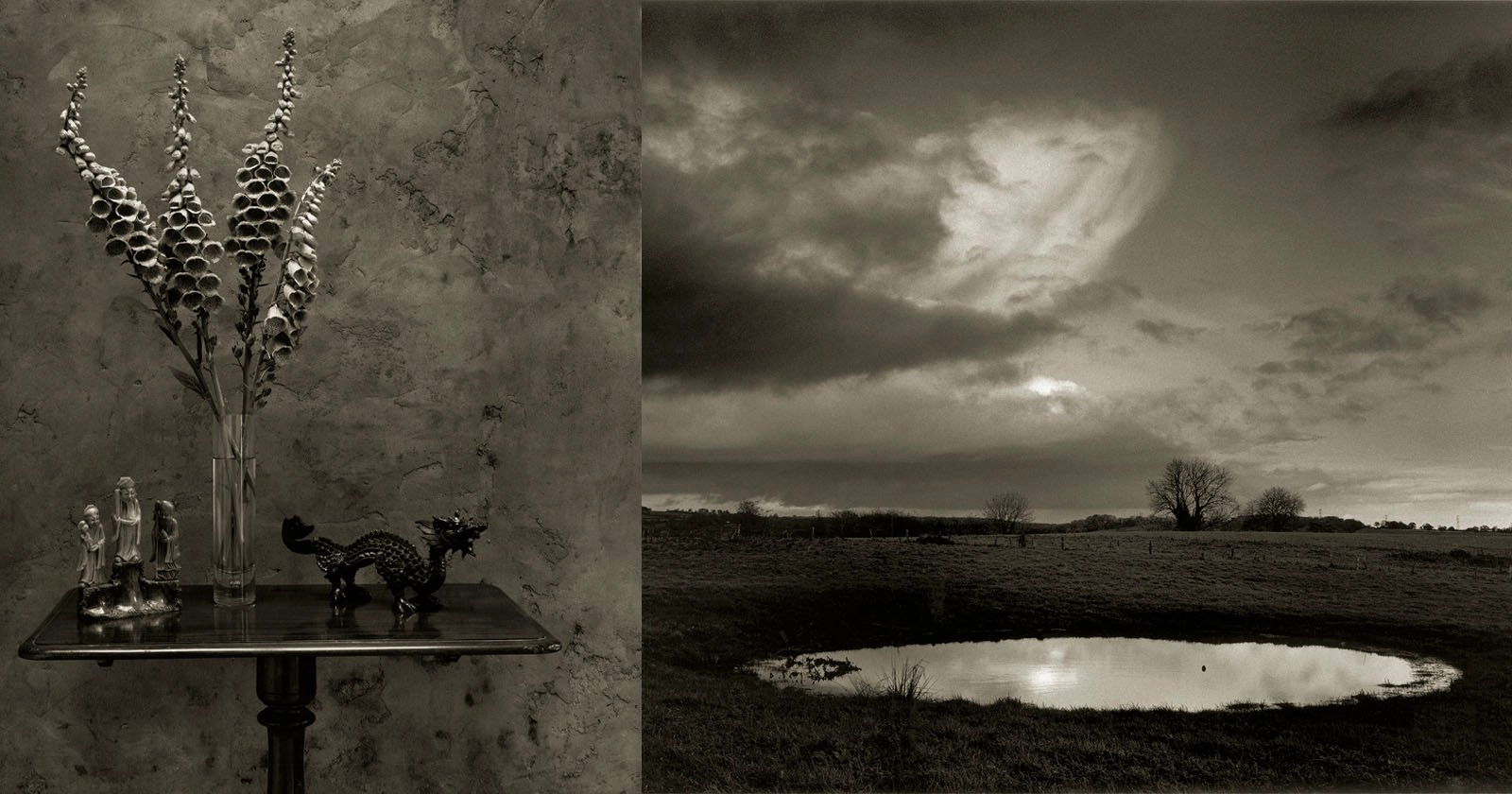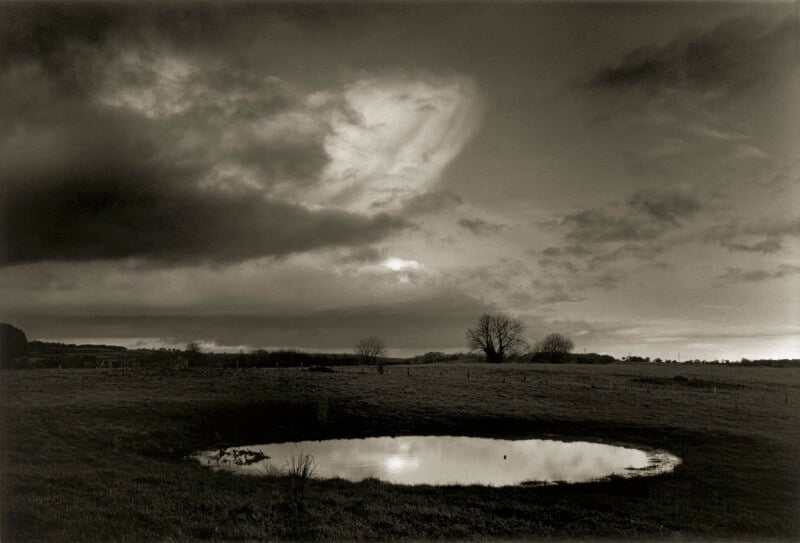 A beautiful dew pond in my village with a strange sky, Somerset © Don McCullin
A beautiful dew pond in my village with a strange sky, Somerset © Don McCullin
War photographer Don McCullin is best known for his images of shell-shocked U.S. Marines or harrowing pictures of famine victims. His new book represents a change of pace.
The Stillness of Life coincides with McCullin’s 90th birthday and finds the photographer in a contemplative mood as he showcases his still life and landscape photos that he continues to take on black and white film while also delving into his vast archive.
McCullin’s still life arrangements were shot in his garden shed at home in Somerset, England. He’s been shooting them since the early 1980s and imitates the Dutch masters by using soot from his chimney to create a background texture for his chosen objects.
Many of the objects are mementos from his travels: a bronze dragon from East Asia, a junk shop vase, a Hindu goddess. He arranges disparate inanimate objects with fruits and flowers as a way of interplaying transience and permanence.
The landscape photos in the book are taken in the Industrial North of the U.K., to India, Africa, and more recent images taken closer to his home in Southwest England. All in all, the book is a departure from the human-focused work McCullin is best known for.
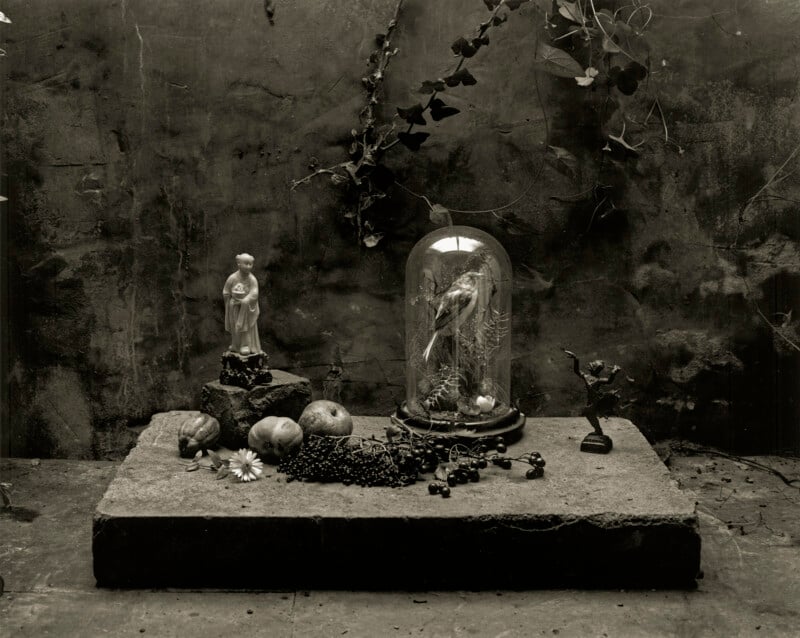 Copying the Dutch masters in my garden shed © Don McCullin
Copying the Dutch masters in my garden shed © Don McCullin
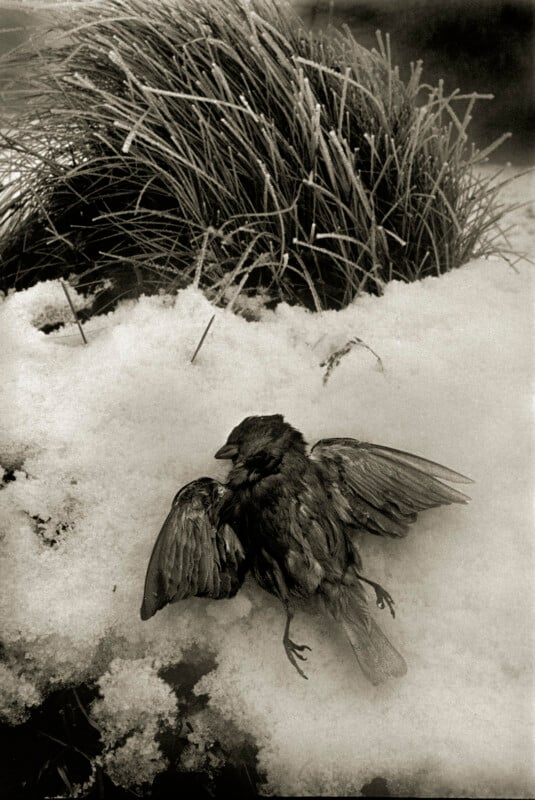 A winter’s victim. The end of a day in a village where I once lived, Hertfordshire © Don McCullin
A winter’s victim. The end of a day in a village where I once lived, Hertfordshire © Don McCullin 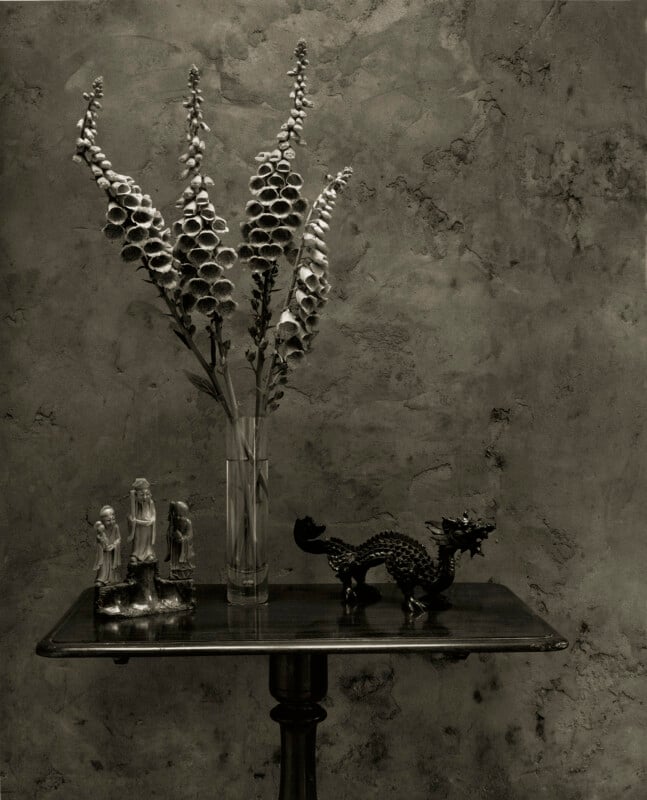 Foxgloves with Chinese figures and dragon © Don McCullin
Foxgloves with Chinese figures and dragon © Don McCullin 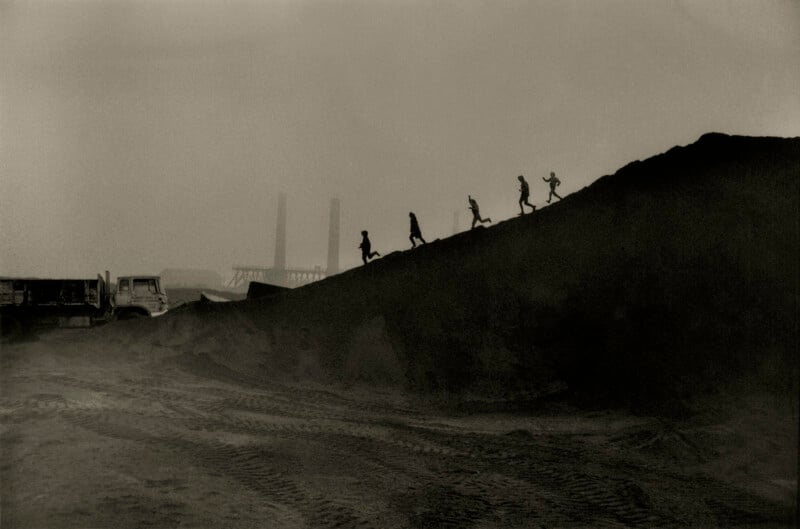 Industrial playground, the disused steel town of Consett, County Durham © Don McCullin
Industrial playground, the disused steel town of Consett, County Durham © Don McCullin 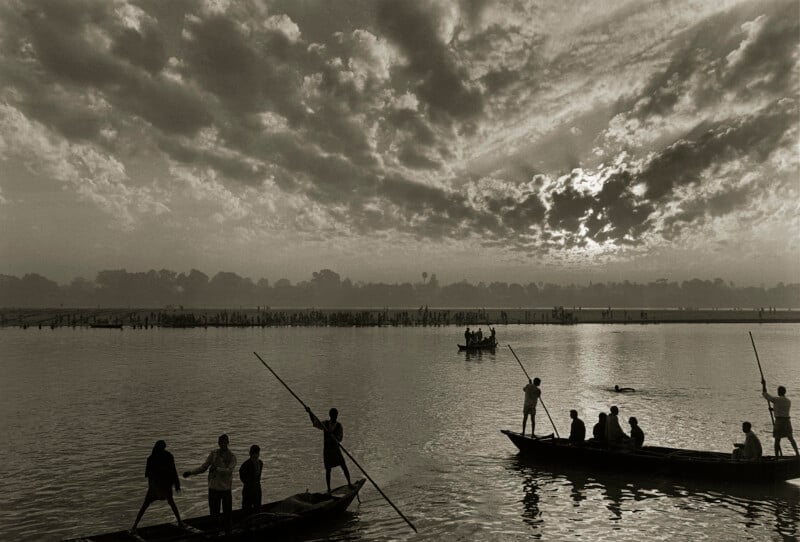 Early morning, Gandak River, The Elephant Festival, Sonepur Mela, Patna, India © Don McCullin
Early morning, Gandak River, The Elephant Festival, Sonepur Mela, Patna, India © Don McCullin 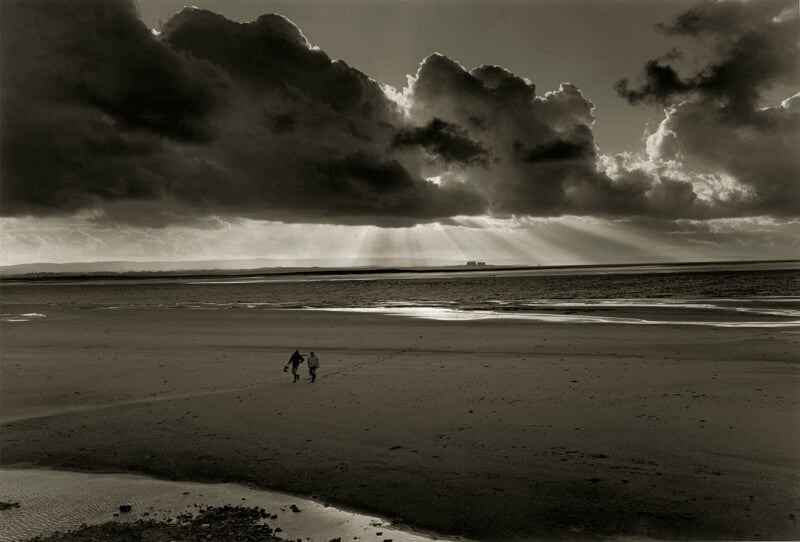 Fishermen collecting worms, Hinkley Point, Somerset © Don McCullin
Fishermen collecting worms, Hinkley Point, Somerset © Don McCullin 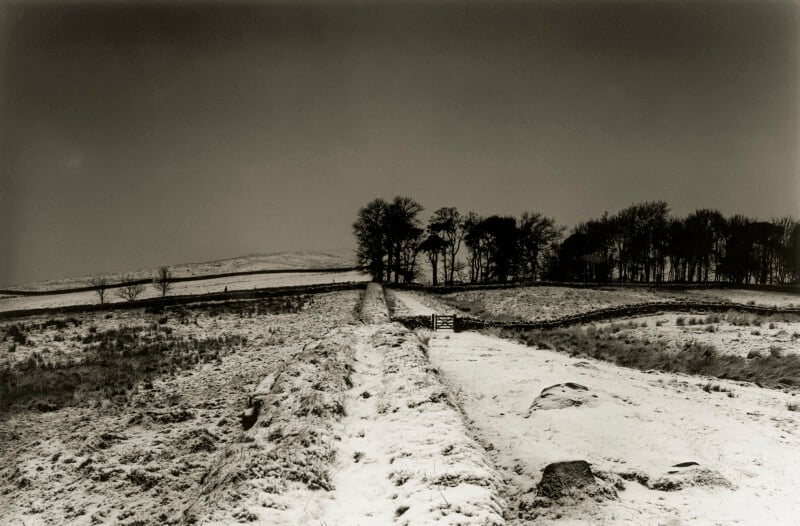 Hadrian’s Wall moments after a snowfall, Northumberland © Don McCullin
Hadrian’s Wall moments after a snowfall, Northumberland © Don McCullin 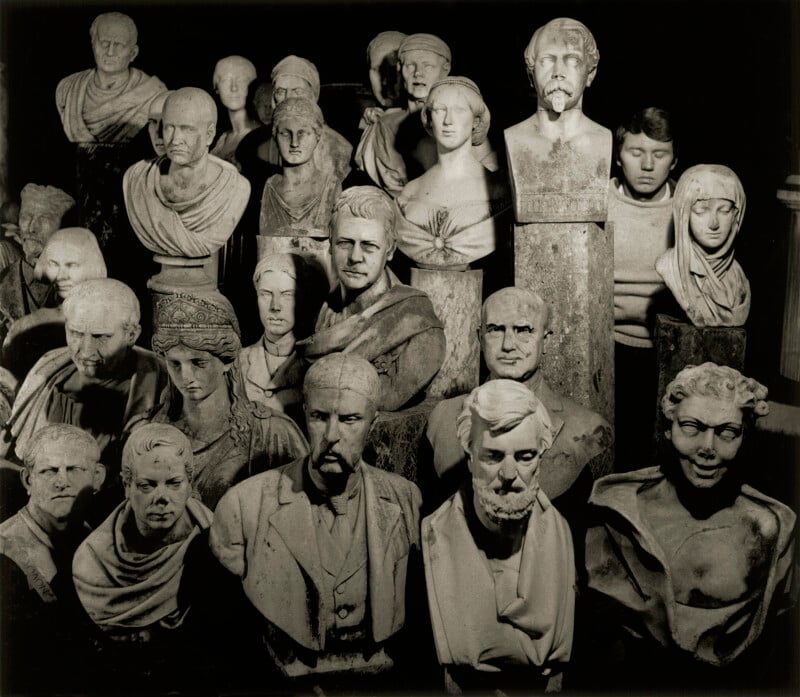 Self portrait in Crowthers reclamation yard, Islesworth © Don McCullin
Self portrait in Crowthers reclamation yard, Islesworth © Don McCullin
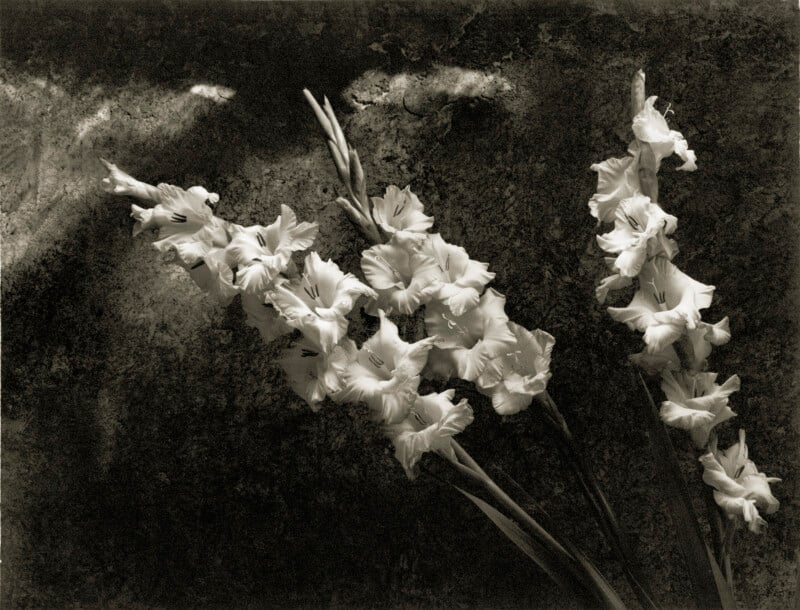 Gladioli in my garden shed © Don McCullin
Gladioli in my garden shed © Don McCullin
McCullin is something of a glum figure as he continually questions the purpose of his career covering conflicts. In an interview with The Times of London this week, McCullin declared that none of his photographs has made any difference.
“It’s silly when anyone says, ‘Your pictures make such a difference.’ They’ve made no difference whatsoever. I’m preaching to the converted,” he tells the newspaper. “I’ve spent all these years covering wars and they’re never going to end.”
